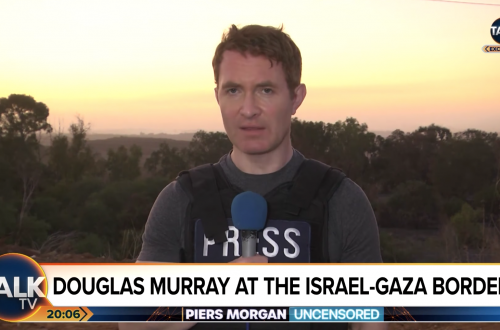This is a cross-post from Carmel Gould at Just Journalism.
It really is sad that on the morning between Middle East massacre and peace talks a Palestinian commentator would use a platform at The Guardian to extol the virtues of Palestinian rejectionism. Ghada Karmi forecasts that Israel will scupper the up-coming direct negotiations with the Palestinians. But she’s quite happy about that because of the ‘real danger’ of an outcome which ‘falls far short of the needs of international law or elemental justice, and sets back the cause of Palestine for decades, if not for ever.’ In this way, Karmi construes, Israel is the Palestinians’ ‘saviour’.
Historically, she claims, ‘All peace proposals after 1967 were based on maintaining Israel as a regional power and forcing the Palestinians to settle for less than they were entitled to. They were repeatedly offered paltry settlements that legitimised Israel’s hold on most of their land and undermined their right of return. Had Israel agreed, the Palestinian cause would have been lost long ago.’
While the intention is doubtless to cast Israel as the villain, solely responsible for the Palestinians’ statelessness something else is revealed about why 62 years after the foundation of the State of Israel the Palestinians are still left with nothing: the fundamental Palestinian refusal to compromise. To Karmi, the Israeli Palestinian conflict is a zero sum game in which all Israeli offers are ‘paltry,’ and ‘rights’ and ‘the cause’ override the importance of things like Palestinian statehood, peace, jobs and bread on the table.
Also coyly elided in Karmi’s piece is her own true view, expressed elsewhere, that a Palestinian state in all of East Jerusalem, all of the West Bank and all of Gaza would still be insufficient. She wants one state superimposed on the entire region, spelling the end of Jewish self-determination in the region. As Karmi wrote in the Christian Science Monitor in 2008:
‘[The two-state solution] proposes to partition historic Palestine – an area that includes present-day Israel, the West Bank, the Gaza Strip, and Jerusalem – massively and inequitably in favor of Israel as a Jewish state. By definition, this rules out possibility of Palestinian return except to the tiny, segmented West Bank territory that Israeli colonization has created, and to an overcrowded Gaza, which cannot accommodate the returnees. Thus the “peace process” is really about making the Palestinians concede their basic rights to accommodate Israel’s demands.’
This viewpoint, the so-called one-state solution, places Karmi at odds with more than fifty percent of Palestinians actually living in the West Bank, Gaza and East Jerusalem, who would be satisfied with a two-state formulation, according to a recent poll conducted by the Palestinian Center for Public Opinion.
She also prefers to delude herself that the Arab world has shown the Jewish state nothing but generosity and understanding since its inception and that it was Israel who ungratefully launched three wars against its multiple neighbours, rather than the reverse. (Palestinian President Mahoud Abbas was much more honest and constructive when a few months ago he called the second intifada the ‘worst mistake’ of Palestinians’ lives.) Karmi also lives in denial of Israel’s reasonable offer at Camp David in 2000 which Arafat outrageously refused even to respond to. No, the record has been scrubbed to quietly substitute the multiple Israeli offers over the years with the Saudi peace plan of 2002.
This is not to pretend that Israel is innocent. Its unfair settlement policy in the West Bank and the horrific statements put out by messianic extremists such as Rabbi Ovadia Yosef, designed to scuttle negotiations, are likewise deleterious to the peace process. But the fundamental difference between the Israeli and Palestinian sides is Israel’s willingness to compromise on land. The most historic example of this was its acceptance of the 1947 partition plan which designated Jerusalem and the most habitable parts of Palestine to the Palestinians, whilst consigning the Jews to discontiguous land in the southern desert and to the north. The Palestinians said no to that deal.
The fact is that many involved in advocating on the Palestinian side – particularly those who have the luxury of not living in the West Bank, Gaza or the numerous Palestinian slums across the Middle East – are still stuck in 1947, unable to come to terms with the fact that Israel came into existence and continues to exist. They wish this not to be the case to such an extent that they are not ashamed to express publicly their desire, 62 years on, for talks to fail, for a solution to remain elusive and by extension, for the Palestinians to remain stateless and miserable, clinging to the fantasy of Greater Palestine.
Only when this destructive psychology is abandoned in favour of one which prioritises the material well-being of Palestinians, and values some land over no land, will the true Palestinian cause – that of statehood and independence – be served.


